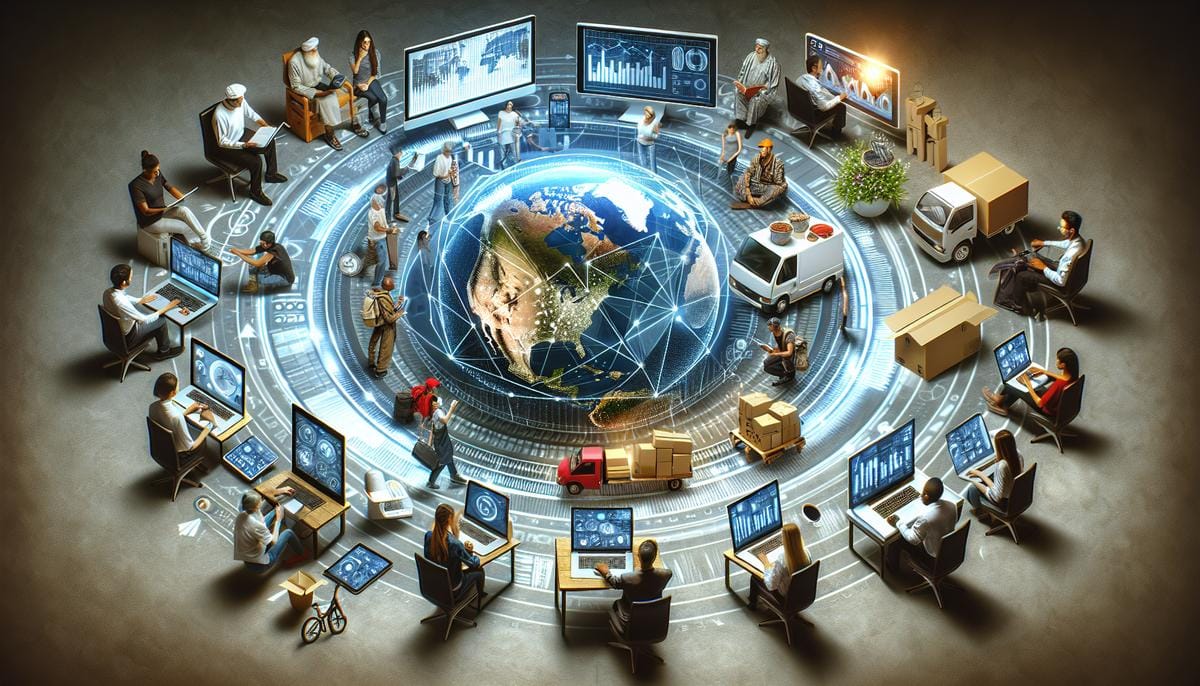The Gig Economy: Tech's Role in Shaping Modern Work

The rise of the gig economy has been nothing short of meteoric, with an estimated 57 million workers in the US alone participating in some form of freelance work. It's a trend that's been driven in large part by technology, which has made it easier than ever for individuals to find and complete short-term work assignments. In this article, we'll take a closer look at the role of tech in shaping the modern gig economy, and explore how it's changing the world of work as we know it.
What is the Gig Economy?
Before we dive into the role of technology, let's first define what we mean by the gig economy. Simply put, the gig economy refers to a labor market characterized by short-term contracts or freelance work, as opposed to permanent jobs. This can include everything from driving for a rideshare company like Uber or Lyft to completing freelance writing assignments on platforms like Upwork or Fiverr. The gig economy is also sometimes referred to as the "sharing economy" or "on-demand economy."
The Role of Technology
Technology has played a critical role in the rise of the gig economy, making it possible for workers to connect with employers and clients from all over the world with just a few clicks. Online platforms and apps have made it easier than ever for individuals to find work that fits their skills and schedules, and for companies to tap into a global pool of talent. These platforms are also helping to level the playing field for workers, giving them the tools they need to compete in an increasingly competitive job market.
Platforms and Apps
One of the biggest drivers of the gig economy has been the proliferation of platforms and apps that connect workers with clients. Companies like Uber and Lyft have become household names, but there are also countless other platforms that cater to a wide range of industries, from graphic design to dog walking. These platforms make it easy for workers to find and accept assignments, with many offering features like in-app messaging and payment processing.
The Rise of Remote Work
Technology has also made it possible for workers to do their jobs from just about anywhere, which has been a game-changer for the gig economy. Remote work has become more common in recent years, with many companies allowing employees to work from home or other remote locations. This has opened up new opportunities for workers, who can now take on freelance assignments from anywhere in the world.
Automation and AI
Another way that technology is shaping the gig economy is through automation and artificial intelligence. Many tasks that were once done by humans can now be done by machines, which has both positive and negative implications for workers. On one hand, it means that some jobs may become obsolete, but on the other hand, it also means that workers can focus on higher-value tasks that require a human touch.
The Impact on Workers
The gig economy has had a profound impact on workers, offering both opportunities and challenges. On the plus side, the gig economy offers workers greater flexibility and the ability to take control of their careers. It's also opened up new opportunities for those who may have been shut out of traditional employment, such as stay-at-home parents or those with disabilities.
However, the gig economy also presents some challenges. Gig workers often lack the benefits and protections that come with traditional employment, such as health insurance and retirement plans. There's also the issue of job security, with many gig workers facing uncertainty about their income from week to week.
The Future of Work
The gig economy is just one part of a larger shift in the world of work, as technology continues to change the way we think about jobs and careers. It's clear that the gig economy is here to stay, but it's also clear that there are still many questions to be answered about how to ensure that workers are protected and supported.
As we move forward, it will be important for policymakers, businesses, and workers themselves to work together to create a more sustainable and equitable gig economy. Technology will continue to play a crucial role in this process, providing the tools and platforms that make it possible for workers to thrive in this new world of work.
Conclusion
The gig economy is changing the way we think about work, and technology is at the heart of this transformation. From online platforms to remote work to automation, tech is making it easier than ever for workers to find and complete freelance assignments. However, it's also raising important questions about job security and worker protections. As we look to the future, it will be crucial to find ways to balance the opportunities of the gig economy with the needs of workers.


